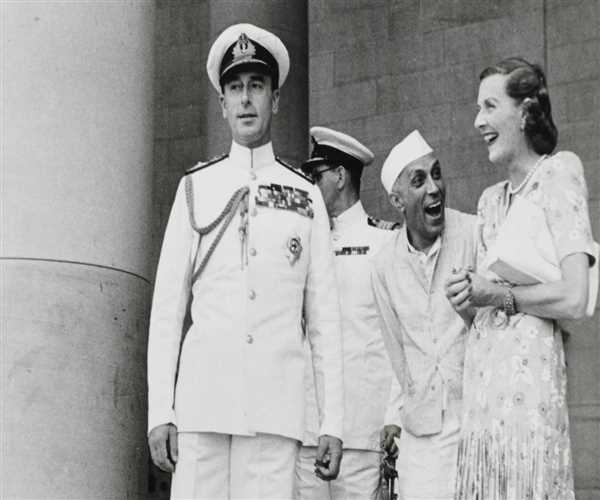
19-Jun-2024 , Updated on 6/19/2024 5:49:10 AM
Love and Legacy: The Complicated Tale of Edwina Mountbatten and Nehru
In the tumultuous aftermath of India's partition in 1947, amid the fracturing of nations and the painful division of communities, a clandestine relationship blossomed between Jawaharlal Nehru and Edwina Mountbatten. Their connection, which transcended mere political alliances, was underscored by Nehru's poignant query in April 1948: "Where are our grand thoughts?" This question, posed in private correspondence, hinted at the depths of their emotional entanglement amidst the backdrop of a fractured subcontinent.
Edwina Mountbatten, as the wife of the last Viceroy of India, Lord Mountbatten, wielded considerable influence in the final throes of British colonial rule. Her role facilitated frequent meetings with Nehru, India's first Prime Minister, blurring the lines between duty and personal desire. The media of the time speculated fervently on the nature of their relationship, with journalists and observers alike captivated by their proximity and the whispers of a scandalous affair.
Even Pamela Mountbatten, Edwina's daughter, reluctantly acknowledged the unsettling closeness between her mother and Nehru. In the tranquil retreats of Mashobra and other hill stations, where Nehru often sought refuge from the pressures of governance, their bond deepened. Pamela, a witness to their interactions, later reflected on her mother's uncharacteristic tranquility and apparent contentment in Nehru's presence.
Edwina's infatuation with Nehru found its way into her memoir, "Daughter of the Empire," where she detailed Nehru's voice, his attire—a white sherwani adorned with ostentatious red roses—and the undeniable allure he held over her. Historians like MJ Akbar added layers to this narrative, recounting incidents such as the one witnessed by Russian Modi, son of Sir Homi Modi, then Governor of Uttar Pradesh. Caught in a compromising embrace in Nainital, Nehru and Edwina's indiscretions were thrust into public scrutiny, challenging the veneer of respectability that surrounded their high-profile positions.
Their affair, marked by clandestine meetings and fervent correspondence, persisted despite the impending farewells. In 1948, amidst a grandiose farewell dinner at the Governor House before the Mountbattens' return to England, Nehru implored Edwina to defy convention and stay, continuing their liaison amidst the tumult of post-partition India. Their letters, exchanged across oceans and continents, bore witness to their reckless entanglement—a testament to the audacity of their forbidden passion.
Perceived by many as a betrayal of trust and a breach of moral boundaries, Nehru and Edwina's relationship earned begrudging nods, even from Lord Mountbatten, whose tacit acceptance facilitated their clandestine escapades in the corridors of power. Edwina's death in 1968 marked the end of a scandalous era, coinciding poignantly with Nehru's final salute to India's Defense Minister, Krishna Menon, from Trichur—a symbolic closure to a saga of political intrigue, personal betrayal, and forbidden love.

Student
I am a content writter !
Join Our Newsletter
Subscribe to our newsletter to receive emails about new views posts, releases and updates.
Copyright 2010 - 2026 MindStick Software Pvt. Ltd. All Rights Reserved Privacy Policy | Terms & Conditions | Cookie Policy